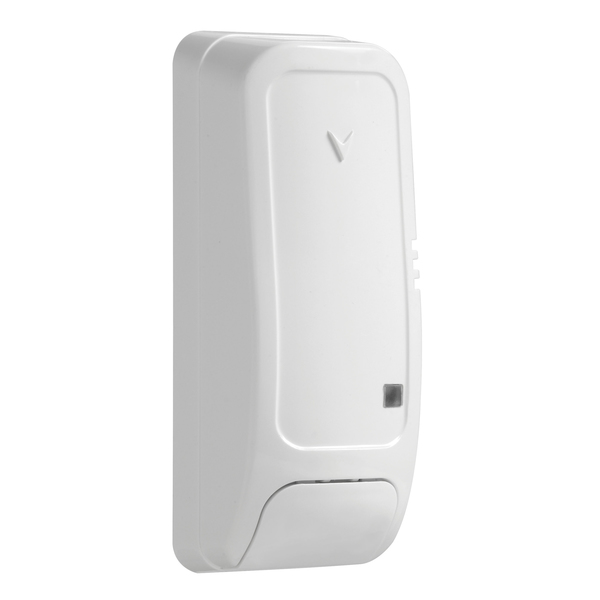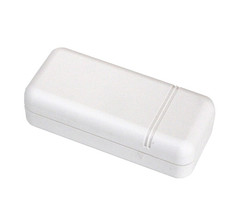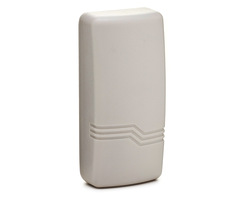Suffering from a serious house fire is an unfortunate reality that many people experience every single year. Understanding the most common causes of house fire can help you take preventive measures and stay prepared. With our helpful tips, you can prevent a serious fire in your home!
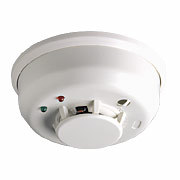
As a homeowner, it is your duty to make sure that your house is equipped to detect a fire and receive a prompt emergency response. This means installing an alarm system and programming enough smoke and heat detectors to cover the entirety of your house. You should have at least one smoke detector on every floor of your house. There should also be a smoke detector inside each bedroom, as well as inside each large central area, such as living rooms and dens. Hallways are also great locations for smoke detectors. Meanwhile, you can install standalone heat detectors inside areas not suitable for smoke detectors, such as kitchens, garages, attics and bathrooms.
However, a smoke and heat detector won't actually stop a fire from occurring. It will only alert you and/or a central monitoring station to a fire that is already in progress. That is why you need to take proper precautions to prevent fires in your home. If you know how most fires occur, then you can properly do you part to prevent them. With that out of the way, here are the top 10 causes for house fires and ways that you can prevent them.
10. Household Lighting
A light bulb housed inside a glass lighting fixture or light globe has the potential of starting a fire if it is not set up properly. This is especially true if it is very close to a lamp shade or something flammable. Also, knocking over a lamp onto the carpet can cause a fire if you are not careful.
Solution: Make sure to use light bulbs that comply with the recommended wattage specification of the lighting fixture. Also try not to leave lights left on overnight or while you are away. And remember to not place anything flammable around your lights and light bulbs!
9. Flammable Liquids
Many fires in the home occur to the careless use of flammable liquids. This usually concerns fuels such as gasoline or kerosene. However, some fires even occur due to rubbing alcohol or liquor that has been spilled and exposed to an open flame.
Solution: Always label your flammable liquids, and put them in a safe area away from heating sources and open flames. Make sure the other members of your household know not to use these liquids outside of their intended purposes.
8. Outdoor Barbecues
Barbecues are a lot of fun, but they can also turn into a fire hazard! A malfunctioning or greasy grill can cause a fire, as can general carelessness. A gas or propane leak can also result in a serious fire. If the fire manages to reach a tablecloth or household wall, disaster can strike.
Solution: Never use faulty or barbecue equipment, and make sure your grill is cleaned regularly. Always supervise your grill station while cooking to make sure a fire does not occur. You might also consider using natural gas and propane detectors. You might also consider the 2GIG STVGRL1-345 for compatible systems to make sure you do not leave your grill on.
7. Christmas Trees
Christmas trees are a must-have for the holiday season! But they can result in a house fire if you aren't careful. This is especially true if you have a dried-out tree that is surrounded by Christmas lights. Keep in mind that this can potentially happen with any holiday lights!
Solution: Keep your Christmas tree hydrated by watering it regularly and removing any dead wood from the trunk that would prevent it from soaking up water. Make sure you turn off your lights when you go to sleep. If you really want to be careful, just get an artificial fire-safe Christmas tree.
6. Candles
Candles smell great, and they really brighten up a room. But they are also an obvious fire hazard. Some carelessness can quickly result in a house fire and some expensive damage!
Solution: Never leave candles unattended, and make sure you put them out before you leave or go to sleep. Also remember to keep them away from flammable objects like tissue boxes and books. And be sure to avoid knocking a candle over!
5. Electrical Appliances
Many electrical appliances like toasters and clothes dryers can cause fires. This is often the case when the appliance has access to something flammable nearby, such as paper towels or cotton.
Solution: Check your appliances regularly, and replace them if they are faulty. Make sure to supervise your electrical equipment when it is in use. It is also a good idea to keep up with proper maintenance, including cleaning the lint trap in your dryer.
4. Curious Children
If there are children in your household, then they might be curious to know what happens if an object catches fire. A silly mistake or genuine curiosity could result in the end of your home.
Solution: Teach your kids fire-safety at an early age, and make sure they understand the consequences of playing with fire. Supervise younger children, and make sure they are not putting your home at risk. You might even want to enroll your children in a fire-safety class at a school or with your local fire department. Make it a family activity, and consider it a good learning experience for yourself as well.
3. Smoking Indoors
It's your home! If you want to smoke indoors, then that is your right. But just be aware that it can lead to a fire if you aren't careful. Many fires occur in bedrooms while smoking. This is often the case when the person smoking is under the influence of drugs or alcohol.
Solution: To be extra cautious, you should restrict smoking to outdoor areas only. If you really want to smoke indoors, try to avoid doing it in bed or around flammable objects. Better yet, take up vaping, or quit the habit altogether.
2. Heating Equipment
We get it - you need your heater to get through those rough winter months! Maybe you even have a Japanese-style kotatsu that you absolutely love? But that comfort device can quickly result in a fire if you aren't careful.
Solution: Keep your space heating devices away from flammable items and objects like laundry and curtains. Avoid knocking these devices over, and don't use them while unattended. And if you have a furnace, have it inspected regularly!
1. Cooking
Most fires occur in the kitchen due to cooking accidents. It really shouldn't come as much of a surprise. The kitchen is the number one source of fires in the home.
Solution: We would love to tell you to just eat out and avoid cooking altogether. But that isn't really feasible. Instead, we'll just have to give you the same old message as always. Follow safe cooking practices, and never leave your oven or stove unattended. Also make sure to install heat detectors in your kitchen. Maybe take a cooking class if you have a tendency to burn dinner!
If you have any questions about fire-safety, you can always reach out to us for help! The best way to contact us is to email support@alarmgrid.com. Just remember that we usually only respond to emails during our regular business hours of 9am to 8pm ET M-F. We look forward to hearing from you!



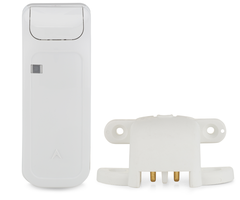












 Next, we'll be looking at flood sensors. These devices use probes to detect water caused by a flood or leak. It only takes a small amount of liquid to activate one of these sensors, so your system will be alerted before any serious damage occurs. Many of these sensors double as temperature sensors, so expect to see quite a bit of cross-over with that section as well. For best results, use your flood sensors in low-plane areas where leaks are likely to occur, such as underneath toilets, water heaters, and in basements. You might also see that some flood sensor have a reporting delay that is used for
Next, we'll be looking at flood sensors. These devices use probes to detect water caused by a flood or leak. It only takes a small amount of liquid to activate one of these sensors, so your system will be alerted before any serious damage occurs. Many of these sensors double as temperature sensors, so expect to see quite a bit of cross-over with that section as well. For best results, use your flood sensors in low-plane areas where leaks are likely to occur, such as underneath toilets, water heaters, and in basements. You might also see that some flood sensor have a reporting delay that is used for 

